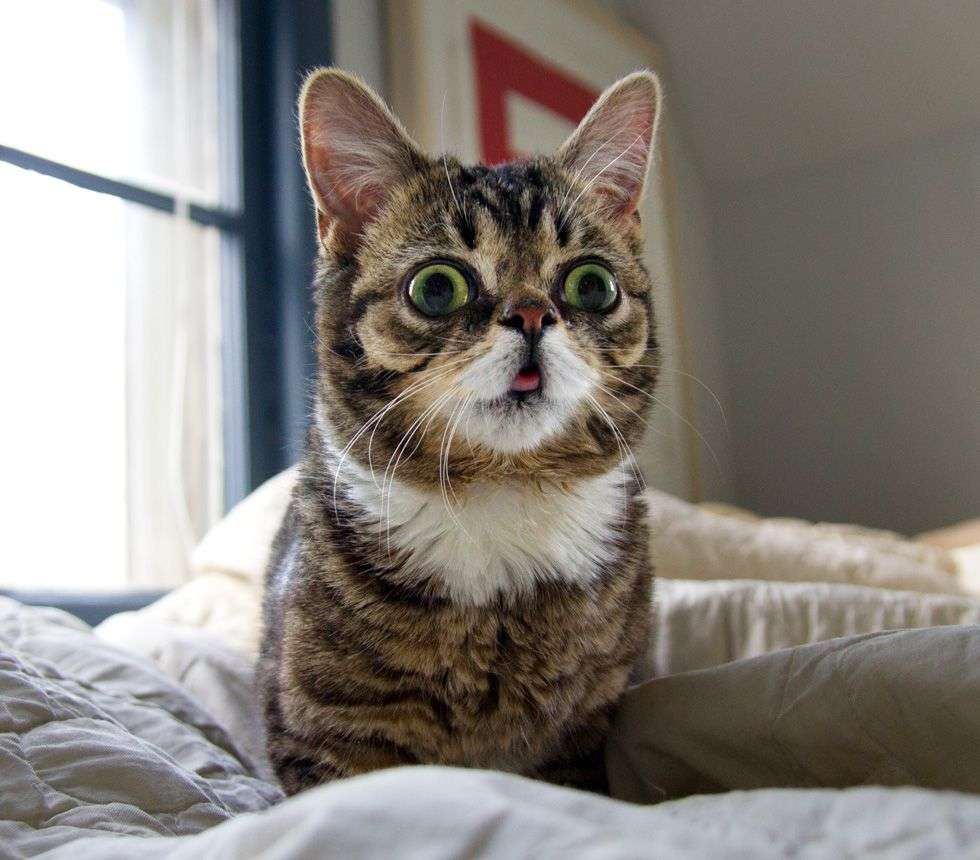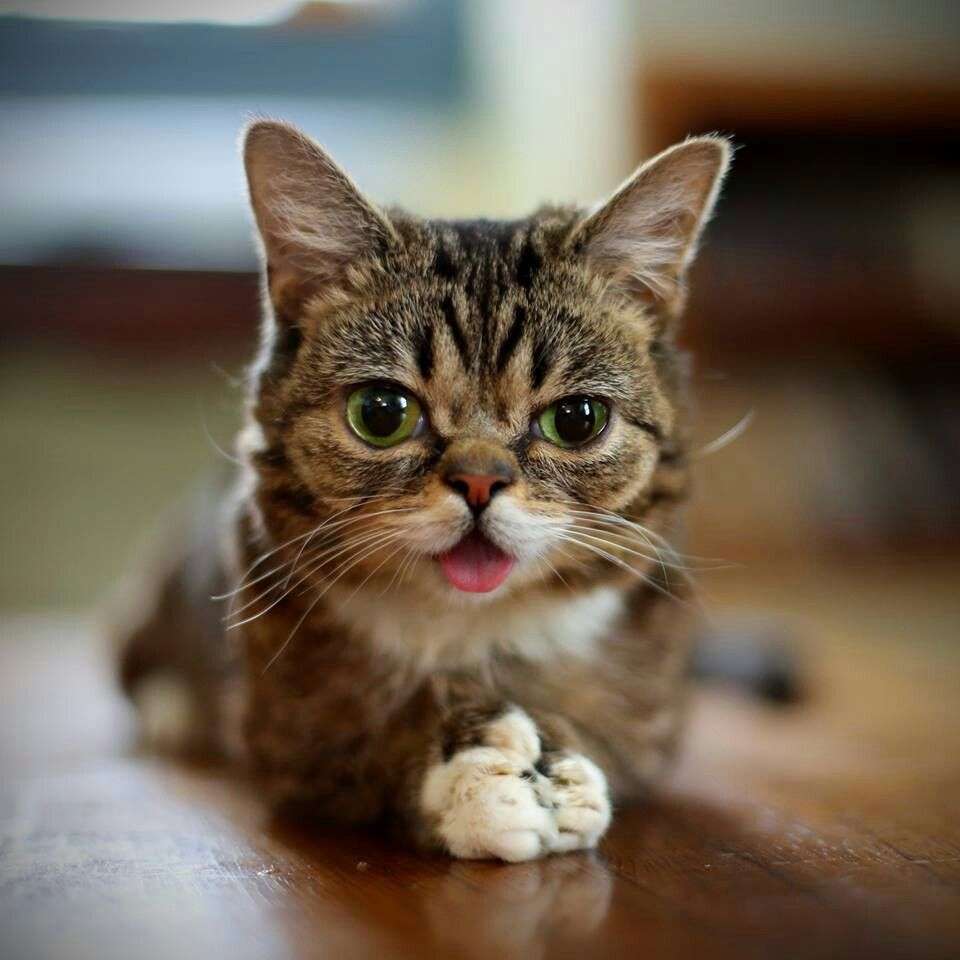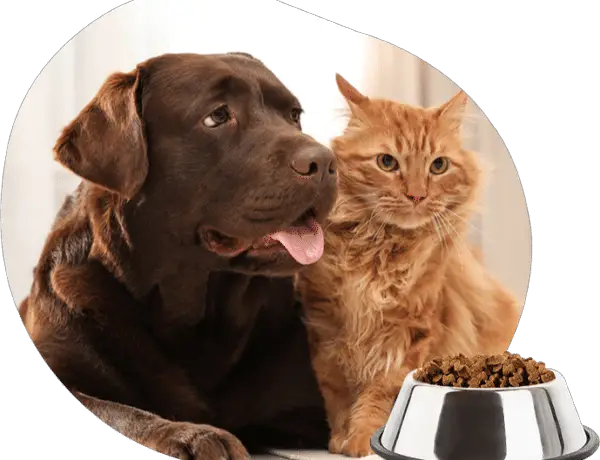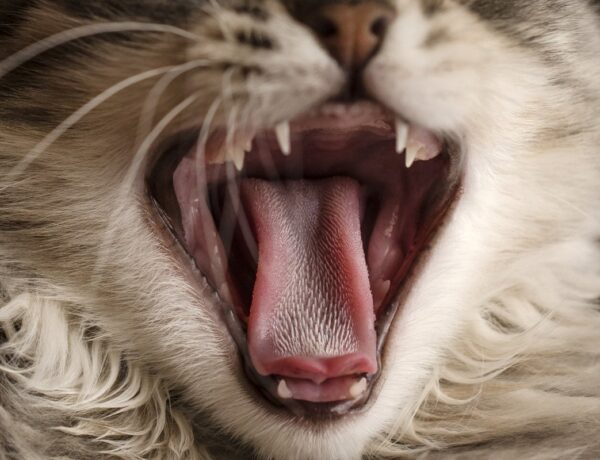Introduction
Down syndrome is a genetic disorder that affects humans, but can it also affect cats? This is a question that many pet owners may have, especially if they notice certain physical or behavioral characteristics in their feline companions that resemble those seen in individuals with Down syndrome. We will explore whether cats can have Down syndrome and what signs to look out for.
The existence of a third copy of chromosome 21 results in the developmental disorder known as Down syndrome. This additional genetic material leads to various physical and cognitive impairments in humans, such as intellectual disability, distinct facial features and certain health conditions. However, Down syndrome has never been reported in any animal other than humans.
While cats cannot have Down syndrome, they can experience genetic disorders that may result in similar physical or behavioral characteristics. Chromosome abnormalities and gene mutations are common causes of these conditions. Feline cerebellar hypoplasia is an example of a disorder that can lead to incoordination, tremors, and a shaky stride in cats.
Another genetic disorder that can affect cats is called feline hyperesthesia syndrome also known as “”rolling skin disease.” This condition causes cats to exhibit excessive grooming, twitching and sensitivity along their back. Although these disorders may share some similarities with Down syndrome, it is important to remember that they are distinct conditions with their own unique characteristics and causes.

Is there a cat version of Down syndrome?
Down syndrome is a genetic disorder that occurs in humans, typically caused by the presence of an extra copy of chromosome 21. It is characterized by physical and intellectual disabilities. As well as certain facial features. However, Down syndrome is a condition specific to humans and does not have a cat equivalent.
Cats, like all animals, have their own set of genetic disorders and conditions that are unique to their species. While there may be some similarities in certain genetic disorders between humans and cats, there is no known cat version of Down syndrome.
It is important to note that cats and humans have different numbers of chromosomes. Humans have 46 chromosomes, while cats have 38 chromosomes. This difference in chromosome number means that genetic disorders and conditions that affect humans may not have a direct equivalent in cats.
While cats can experience certain genetic disorders and conditions, such as feline leukemia or hypertrophic cardiomyopathy, these are specific to cats and do not have a direct correlation to Down syndrome in humans.
It is also worth mentioning that the symptoms and characteristics of Down syndrome in humans are unique to our species. The physical and intellectual disabilities. As well as the distinct facial features associated with Down syndrome, are not observed in cats.
Why does my cat look Down syndrome?
It is not accurate to say that a cat can have Down syndrome. Down syndrome is a genetic disorder that affects humans and it is caused by the presence of an extra copy of chromosome 21. Cats, on the other hand, have a different number of chromosomes and do not possess a chromosome equivalent to human chromosome 21. Therefore, cats cannot have Down syndrome in the same way that humans can.
However, it is possible for cats to exhibit certain physical characteristics or behaviors that may resemble those seen in individuals with Down syndrome. Other cat-specific genetic or developmental factors may account for these parallels. For example, some cats may have a flattened facial structure. Which can give them a similar appearance to individuals with Down syndrome. Additionally, cats with certain genetic conditions or health issues may exhibit developmental delays or cognitive impairments that can affect their behavior and overall appearance.
Brachycephaly is a disorder that causes a cat’s face to become abnormally flat. Brachycephalic cats have a shortened skull and a compressed facial structure, which can result in a unique appearance. Persians and Himalayans are particularly susceptible to this illness. While brachycephalic cats may have a similar facial structure to individuals with Down syndrome, it is important to note that this is a physical characteristic and does not indicate that the cat has the same genetic disorder.
In addition to physical characteristics, cats with certain genetic conditions or health issues may exhibit developmental delays or cognitive impairments. For example, some cats may have a condition called cerebellar hypoplasia. characterized by a lack of maturation in the cerebellum, the brain region responsible for motor control and balance. Cats with cerebellar hypoplasia may have difficulty walking or maintaining balance, and their movements may appear jerky or uncoordinated. While these cats may exhibit behaviors that are similar to those seen in individuals with Down syndrome, it is important to remember that this is a different condition with its own unique characteristics.
Can pets have Down syndrome?
Down syndrome is a genetic disorder that affects humans, but can it also affect pets? This is a question that many pet owners may have, especially if they notice certain physical or behavioral characteristics in their furry friends that resemble those seen in individuals with Down syndrome. While it is not possible for pets to have Down syndrome in the same way that humans do, there are certain conditions and disorders that can cause similar symptoms in animals.
An additional copy of human chromosome 21 results in the development of Down syndrome. This additional genetic material leads to various physical and cognitive impairments. However, animals, including pets, have a different number of chromosomes than humans, and therefore cannot have Down syndrome in the same way.
However, there are some genetic disorders and conditions that can cause similar symptoms in pets. For example, certain breeds of dogs, such as Boxers and Bulldogs are prone to a condition called brachycephaly, which is characterized by a shortened skull and facial features. This can sometimes result in physical and cognitive impairments that resemble those seen in individuals with Down syndrome.
Additionally, some animals may have chromosomal abnormalities or genetic mutations that can cause developmental delays or physical abnormalities. These conditions may not be exactly the same as Down syndrome, but they can result in similar symptoms.
It is important to note that if you suspect your pet may have a genetic disorder or condition, it is best to consult with a veterinarian. They can perform the necessary tests and evaluations to determine the cause of your pet’s symptoms and provide appropriate care and treatment.
Can dogs and cats have Downs syndrome?
Down syndrome is a genetic disorder that affects humans, causing intellectual disabilities and certain physical characteristics. It is caused by the presence of an extra copy of chromosome 21. While Down syndrome is specific to humans, there are similar genetic disorders that can affect animals. However, dogs and cats do not have Down syndrome.
Dogs and cats have their own set of genetic disorders that are specific to their species. These disorders can range from physical abnormalities to cognitive impairments. For example, certain dog breeds are prone to hip dysplasia, a condition where the hip joint does not develop properly. Cats, on the other hand, can develop conditions such as feline leukemia virus or polycystic kidney disease. These genetic disorders are unique to each species and are not comparable to Down syndrome.
While dogs and cats do not have Down syndrome, they can exhibit similar physical characteristics or behaviors that may resemble those seen in individuals with Down syndrome. For example, some dog breeds, such as the Bulldog or Boxer, may have a flattened face and protruding tongue, which can give them a similar appearance to individuals with Down syndrome. Similarly, cats with certain genetic disorders may have physical features that resemble those seen in individuals with Down syndrome.
It is important to note that these physical characteristics or behaviors are not indicative of Down syndrome in animals. They are simply variations within the normal range of genetic diversity for each species. It is also worth mentioning that animals with genetic disorders may require special care or accommodations to ensure their well-being. This can include regular veterinary check-ups, specialized diets, or modified living environments.
Can my cat be mentally challenged
Yes, it is possible for a cat to be mentally challenged. Just like humans, cats can also experience various mental health issues that can affect their behavior and overall well-being. While cats are generally known for their independence and intelligence, there are certain conditions that can cause them to exhibit signs of mental challenges.
One common mental health issue in cats is anxiety. Cats can experience anxiety due to various reasons such as changes in their environment, separation from their owners, or traumatic experiences. An anxious cat may display behaviors like excessive grooming, hiding, aggression, or excessive vocalization. It is important for cat owners to recognize these signs and provide appropriate care and support to help their cats cope with their anxiety.
Another mental health issue that cats can face is depression. Cats can become depressed due to factors like the loss of a companion, major changes in their routine, or lack of mental stimulation. A depressed cat may exhibit symptoms like loss of appetite, lethargy, withdrawal from social interactions, or excessive sleeping. It is crucial for cat owners to provide a stimulating and enriching environment for their cats to prevent or alleviate depression.
In addition to anxiety and depression, cats can also suffer from cognitive dysfunction syndrome (CDS), which is similar to Alzheimer’s disease in humans. CDS is more common in older cats and can cause memory loss, disorientation, changes in sleep patterns, and decreased interest in activities. While there is no cure for CDS, there are medications and management strategies that can help improve the quality of life for cats with this condition.
It is important for cat owners to be aware of the possibility of mental health issues in their pets and to seek veterinary advice if they notice any concerning changes in their cat’s behavior or well-being. With proper care, support, and treatment, cats with mental challenges can lead happy and fulfilling lives.
What is Down syndrome and how does it affect individuals?
Down syndrome is a genetic disorder caused by the presence of an extra copy of chromosome 21. This extra genetic material affects the development of the body and brain, leading to various physical and intellectual disabilities. Individuals with Down syndrome typically have distinct facial features, such as almond-shaped eyes and a flat nasal bridge. They may also have low muscle tone, which can affect their motor skills and coordination.
Intellectual disability is a common characteristic of Down syndrome, although the severity can vary from person to person. Individuals with Down syndrome may have delayed language development and learning difficulties. They may also experience challenges with memory, attention, and problem-solving. However, with appropriate support and early intervention, many individuals with Down syndrome can lead fulfilling and independent lives.
It is important to note that each person with Down syndrome is unique and will have their own strengths, abilities, and challenges. While the condition may present certain limitations, individuals with Down syndrome can still achieve personal growth, social connections, and a sense of belonging within their communities.
Can cats be born with Down syndrome?
Yes, cats can be born with a condition similar to Down syndrome in humans. However, it is important to note that this condition is not officially recognized as “”Down syndrome”” in cats, as it is specific to humans. In cats, this condition is often referred to as “”feline chromosomal abnormality”” or “”feline trisomy.””
Cats with this condition may exhibit certain physical and behavioral characteristics that are similar to those seen in humans with Down syndrome. These characteristics may include a flattened face, smaller stature, cognitive impairments, and developmental delays. However, it is important to remember that each cat with this condition is unique, and the severity of their symptoms can vary.
What are the common symptoms or characteristics of cats with Down syndrome?
Cats with Down syndrome may exhibit a variety of symptoms and characteristics that are different from typical cats. One common characteristic is a flattened facial profile, where the nose appears shorter and flatter than usual. Additionally, cats with Down syndrome may have smaller and rounder eyes, which can give them a distinct appearance.
Another symptom of Down syndrome in cats is developmental delays. These cats may take longer to reach certain milestones, such as walking or learning new behaviors. They may also have difficulty with coordination and balance, which can affect their ability to climb or jump.
Cats with Down syndrome may also have intellectual disabilities, which can impact their ability to learn and understand commands. They may have trouble with problem-solving tasks and may require extra patience and repetition when training. Additionally, these cats may be more prone to certain health issues, such as heart problems or respiratory issues.
Are there any specific health concerns or challenges associated with cats having Down syndrome?
Yes, there can be specific health concerns and challenges associated with cats having Down syndrome. Just like humans with Down syndrome, cats with this condition may experience a range of health issues. One common health concern is a weakened immune system, which can make them more susceptible to infections and illnesses. It is important for owners to provide their cats with a clean and hygienic environment to minimize the risk of infections.
Cats with Down syndrome may also have developmental delays, which can affect their physical and cognitive abilities. They may have difficulty with coordination, balance, and learning new tasks. It is important for owners to be patient and understanding, providing their cats with extra time and support to learn and adapt.
How can owners provide proper care and support for cats with Down syndrome?
Owners of cats with Down syndrome play a crucial role in providing proper care and support to ensure their well-being. Firstly, it is important to create a safe and comfortable environment for the cat. This includes removing any potential hazards or obstacles that may pose a risk to their safety. Additionally, providing a consistent routine and familiar surroundings can help reduce anxiety and stress for the cat.
Owners should also pay close attention to their cat’s diet and nutrition. Cats with Down syndrome may have specific dietary needs or restrictions, so consulting with a veterinarian to develop a suitable meal plan is essential. Regular veterinary check-ups are also important to monitor the cat’s overall health and address any potential medical issues promptly.
Furthermore, owners should engage in regular play and exercise sessions with their cat to promote physical and mental stimulation. This can include interactive toys, puzzle feeders, and gentle physical activities. Additionally, providing a calm and quiet space for the cat to retreat to when they need some alone time is crucial.
Cats can indeed have Down syndrome, although it is relatively rare. Down syndrome is a genetic disorder caused by the presence of an extra copy of chromosome 21, and it affects both humans and animals. While it is more commonly associated with humans, there have been reported cases of cats with Down syndrome. However, it is important to note that the symptoms and severity of the condition can vary greatly among individuals.

One of the main challenges in diagnosing Down syndrome in cats is the lack of standardized testing methods. Unlike in humans, where genetic testing can confirm the presence of an extra chromosome, diagnosing Down syndrome in cats often relies on observing physical and behavioral characteristics. These can include facial abnormalities, developmental delays, cognitive impairments, and other health issues. However, it is important to consult with a veterinarian for an accurate diagnosis, as these symptoms can also be indicative of other health conditions.
While there is no cure for Down syndrome in cats, supportive care and management can help improve their quality of life. This may include providing a safe and stimulating environment, ensuring a balanced diet, and addressing any specific health concerns. Additionally, regular veterinary check-ups and monitoring can help identify and address any potential complications or health issues that may arise.
In conclusion, while it is possible for cats to have Down syndrome, it is relatively rare and can present unique challenges in diagnosis and management. As responsible pet owners, it is important to educate ourselves about the various health conditions that can affect our furry friends and seek professional guidance when needed. By providing the necessary care and support, we can ensure that cats with Down syndrome can lead happy and fulfilling lives.





No Comments